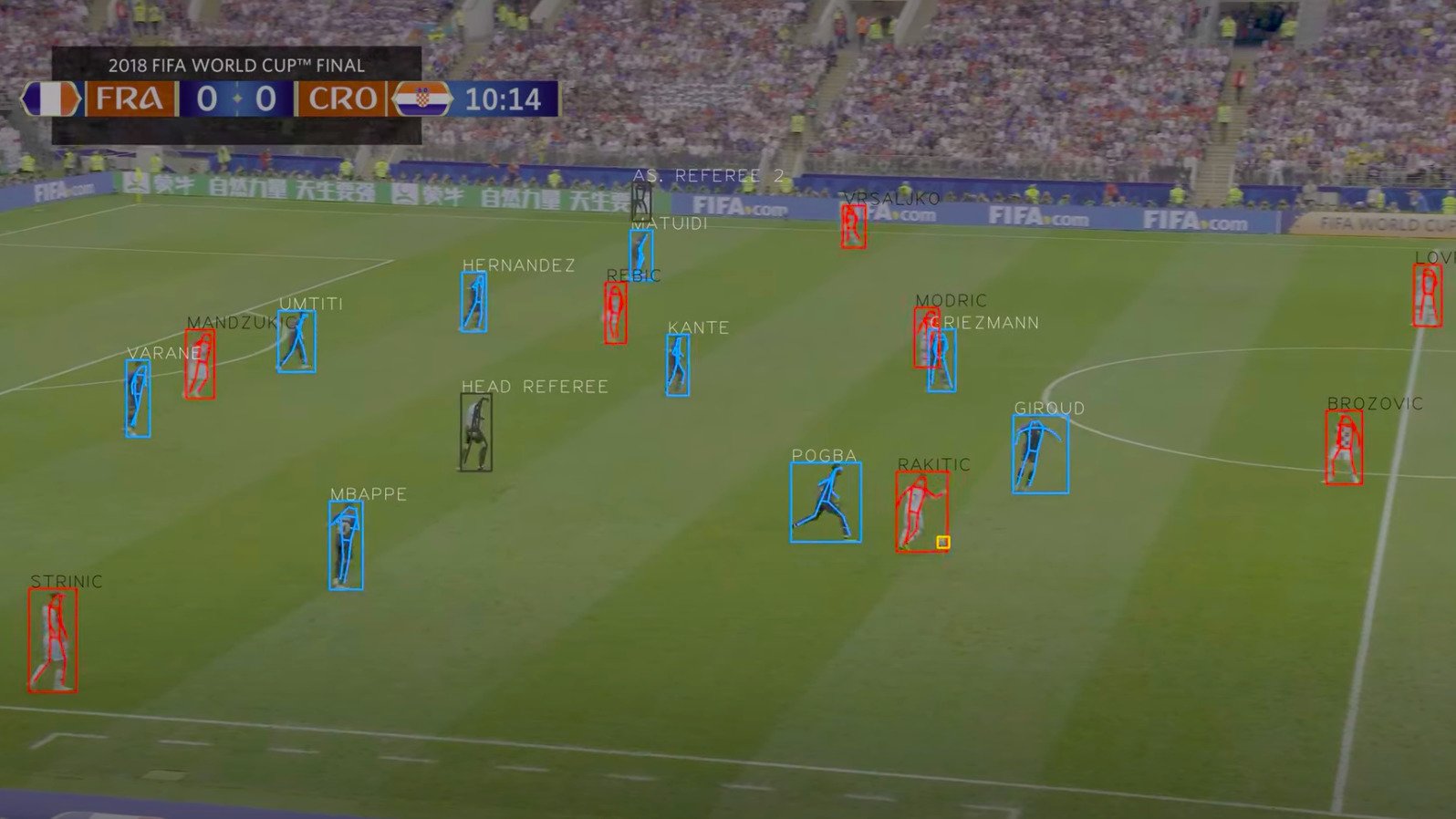It’s a sports fan’s fantasy: dropping into the game and feeling the thrill of, say, receiving a pass from a pro or rebuffing a game-changing goal.
ReSpo.Vision, the startup out of Poland making waves in the sports data industry, isn’t able to offer users that level of escape, at least not near-live and during matches. But as the most sophisticated 3D modeler in the game, it’s on the way. Here’s how it works: Through computer vision and machine learning algorithms using only a single camera, the company harvests a stunning 150 million data points per match in a variety of sports, including the coordinates of over 50 body parts per player, 60 times a second. With this data, it creates immersive VR and AR visualizations. The raw and processed information is then used by teams, among others, to study and improve performance. “We can’t say which clients use us because we have non-disclosure agreements,” says founder Pawel Osterreicher, “but among them are the most advanced and largest football clubs.”
Bookmakers also use ReSpo.Vision’s data to increase the number of “bettable events” such as shots and goals. They also can increase bettor engagement by using ReSpo.Vision’s live 3D imagery. Media companies like it for the lightning-speed stats it provides for commentary, and the way its replays allow for zooming in and new camera angles.


Techonomy sat down with Osterreicher to talk about how AI-informed data processing works, some of the surprising uses for ReSpo.Vision’s statistics, and what inspired this company’s unprecedented approach to AR and VR detail.
Techonomy: I know you’re at the cutting edge of AI algorithms and dimensional modeling. But can you break down Respo.Vision’s product into more basic terms?
Pawel Osterreicher: Essentially, we help competitors—big players, clubs, leagues—gain advantage by using data. We also broaden the horizons of sports fans and entities interested in leveraging that data to obtain more knowledge. Our algorithms detect the players’ coordinates. We then crunch this data to find and tag particular behaviors and game events. After that, we precisely assess players’ performance as well as predict desired events. For clubs and federations, that allows us to suggest tactics, player purchases and more. The bookmaker and media clientele use us for statistics as well, but to meet their own needs.
Techonomy: What are some surprising uses for the data you provide?
PO: The large clubs are crazy about injury prevention. It’s a huge concern, because you pay the athlete regardless of whether or not they play. And with our visuals, you can build a fully working model of human movement. Using that, we analyze data from past games and then look for correlations. When we spot risky movements in the games that we view live, we’ll have a signal to the coach meaning, “Okay, this player is doing something that was correlated very much with injuries in the past.” In those cases, we suggest substituting athletes, or maybe not putting them in the next game.
Techonomy: Startups often have personal passion behind them. Was there a particular reason you wanted to create ReSpo.Vision?
PO: I’m a sports fan, and my co-founders and I hated the fact that we lacked a proper language to talk about them. Why did we have to resort to statements like “this guy runs fast” or “this person is a good defender”? Can you actually extrapolate high level concepts from such simplistic pronouncements? We realized there was a reason we lacked a vocabulary. How much can you actually know if you capture 100 events per game, which is much less than what’s actually happening? We said, ‘let’s change that.’ And AI [which informs the company’s algorithms] is well positioned to help. We soon realized that what we were doing would not only help us improve our language, but it could also help players and teams, and industries like sports betting and media.

Techonomy: You’ve talked about wanting to create immersive versions of games more quickly, so that it would only take seconds before fans could re-experience a play from any angle rather than hours. Can you tell us what such a VR experience would be like for participants?
PO: My dream is that fans can relive games from thousands more camera angles, including viewpoints that were inaccessible to the typical cameras, because ReSpo.Vision’s system recreates the event in full virtual reality almost immediately. So you can essentially teleport yourself in and look to the right and see Tom Brady running next to you, and then look to your left and see the guy trying to tackle him. Or you can see onscreen the crucial situation from the player point of view—directly through their eyes. That’s the future I’m rooting for. We’re working hard on that.
Techonomy: You’ve partnered with Oracle for Startups for Cloud services. What’s been your experience with the program, technically and otherwise?
PO: We have to change our infrastructure every six months or so in order to be able to use the latest CPUs, the latest advancements. It would be close to impossible to have infrastructure in house. What Oracle is offering us is first of all, state of the art machinery. But they also give us lots of help in terms of setting it up. They’re flexible regarding how we can use it too, which is extremely important because we’re not typical infrastructure users.
(This conversation has been edited and condensed for clarity.)
Oracle for Startups is a global program offering hands-on and self-service journeys to help startups scale. Free and easy to join, Oracle for Startups offers business-boosting resources such as cloud credits, mentoring, technical support, and access to customers – giving startups a real-world advantage.
Read our other “Meet the Startups” profiles here.















